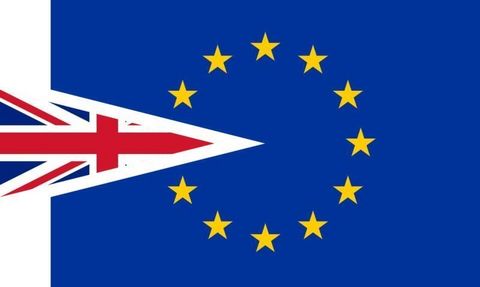Analyses & Studies
Deadlines, dear boy, deadlines...

A week is indeed a long time in politics but until 12th December is even longer. The British electorate will be voting in a general election for the third time since 2015. This election - like the last in 2017 - is designed to break the Brexit deadlock in Parliament. Of course, the election could do this and deliver a clear mandate for the Brexit deal (Conservative), remaining in the EU (Lib Dem) or renegotiating the deal and holding another referendum (Labour). However, in the last forty-five years only Thatcher and Blair have won single party majorities big enough to govern effectively. Even with big majorities neither was able to stay as Prime Minister to the end of their third Parliaments because of party rebellions.
In addition to the historic evidence making winning a majority difficult the remain/leave divide is stronger than the party divide. This led to the Brexit Party and the Liberal Democrats topping the poll in the Europe Elections and their strength makes it even harder for the historic two biggest parties to win a clear majority in 2019. If you add in the strength of the SNP in Scotland, a few MPs (ex Conservatives) likely to stand as Independents and some seat collaboration between Lib Dems, Greens and Plaid Cymru the mountain to win a decent majority is an Everest climb. At this point few except the most partisan would suggest that Johnson is Thatcher in 1979 or that Corbyn is Blair in 1997.
So what conclusions should a business draw from the noise of the next few weeks? Here are four.
1. Even a majority for the deal doesn’t guarantee more than getting the Withdrawal Agreement agreed. Even then 31 January 2020 is a tight deadline given the intervention of Christmas and the New Year and Parliamentary scrutiny in both Houses, oh yes and a vote in the European Parliament.
2. Getting Brexit Done will not get Brexit done since the hard part - and the part that matters - isn’t done ie a UK-EU trade deal. The chances of a comprehensive trade deal by the end of 2020 are near to zero. “We’re not starting from scratch with the UK in relation to a free trade agreement,” Mr Hogan, the new EU Trade Commissioner told reporters in Kilkenny recently, “I think we can do a deal more quickly than other trade agreements but it may take a little bit longer than December 2020. But hopefully it’ll be a lot shorter than the normal five years”.
3. So to update the attributed quote to another former Prime Minister, Harold Macmillan, “events, dear boy, events” is now “deadlines, dear boy, deadlines”. The deadline for trade negotiations starting and extending will quickly arrive next year. Once again tensions will be does the majority hold to extend - and stay in transition, which as we know is EU rules & budget payments after leaving - or leave with No Deal.
4. Even if there is different result - except Revoke - a renegotiation and another Referendum still need no deal planning to stay for every business given the result isn’t certain.
As you seek to cut through the noise remember these words about Brexit, “it could result in ten years or more of uncertainty as the UK unpicks our relationship with the EU and negotiates new arrangements with the EU and over fifty other countries round the world”. It wouldn’t have fitted on the side of a bus but this from the Government booklet to every house in 2016 business will recognise as more likely than the 2019 election slogans.
Article by Neil Sherlock CBE
Joint Chair, Brexit Forum,
French Chamber of Commerce